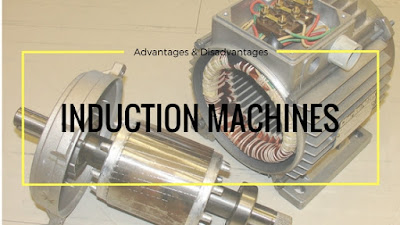The Role of AC Induction Motors in Industrial Automation and Advantages of using it in Renewable Energy Systems
In the realm of industrial automation and renewable energy systems, the AC induction motor stands as a pivotal component, facilitating seamless operations and offering numerous advantages. This article delves into the indispensable role of AC induction motors in industrial automation, along with highlighting their significant benefits when incorporated into renewable energy systems.
Understanding AC Induction Motors
AC induction motors, also known as asynchronous motors, operate based on the principle of electromagnetic induction. Developed by the ingenious Nikola Tesla, these motors have become the cornerstone of industrial processes worldwide. Their simplicity, reliability, and robustness make them the preferred choice across various industries.
Operational Mechanism
AC induction motors function through the interaction between a rotating magnetic field produced by the stator and conductors within the rotor. This interaction induces a current in the rotor, generating torque and facilitating rotation. The absence of physical contact between the stator and rotor eliminates the need for brushes, resulting in minimal maintenance requirements and enhanced durability.
Applications in Industrial Automation
In industrial automation, AC induction motors serve as the driving force behind conveyor belts, pumps, compressors, and various other machinery. Their ability to deliver consistent torque across a wide range of speeds makes them indispensable for maintaining production efficiency and precision in manufacturing processes.
Advantages of AC Induction Motors in Industrial Automation
Energy Efficiency
AC induction motors boast high energy efficiency, contributing to reduced operating costs and environmental sustainability. Their efficient conversion of electrical energy into mechanical work minimizes energy wastage, aligning with modern initiatives for energy conservation and emission reduction.
Robustness and Reliability
Renowned for their robust construction and simple design, AC induction motors exhibit exceptional reliability even under harsh operating conditions. This reliability translates into minimal downtime and maintenance, ensuring continuous operation and optimized productivity in industrial settings.
Cost-effectiveness
The cost-effectiveness of AC induction motors further enhances their appeal in industrial automation. With competitive initial investment costs and low ongoing maintenance expenses, these motors provide an excellent return on investment over their extended operational lifespan.
Compatibility with Variable Frequency Drives (VFDs)
AC induction motors seamlessly integrate with variable frequency drives (VFDs), enabling precise control over motor speed and torque. This compatibility enhances flexibility in industrial processes, allowing for dynamic adjustments to meet varying production demands and optimize energy consumption.
Incorporating AC Induction Motors in Renewable Energy Systems
Role in Renewable Energy Generation
In renewable energy systems, AC induction motors play a crucial role in power generation and distribution. From wind turbines to hydroelectric generators, these motors facilitate the conversion of kinetic or potential energy into electrical power, contributing to the expansion of sustainable energy sources.
Advantages in Renewable Energy Integration
The utilization of AC induction motors in renewable energy systems offers several advantages, including:
- Scalability: AC induction motors support scalable power generation solutions, accommodating diverse applications ranging from small-scale residential setups to large industrial installations.
- Adaptability: Their ability to operate efficiently across varying loads and speeds makes them ideal for adapting to fluctuating renewable energy outputs, ensuring stable and reliable performance.
- Durability: AC induction motors' robust construction enables them to withstand the environmental challenges inherent in renewable energy installations, ensuring long-term durability and minimal maintenance requirements.
Conclusion
In conclusion, AC induction motors serve as indispensable components in both industrial automation and renewable energy systems, offering unparalleled reliability, efficiency, and versatility. Their pivotal role in driving machinery and facilitating energy conversion underscores their significance in modern engineering endeavors. By harnessing the advantages of AC induction motors, industries can achieve enhanced productivity, reduced environmental impact, and sustainable growth in the era of automation and renewable energy.




Comments
Post a Comment